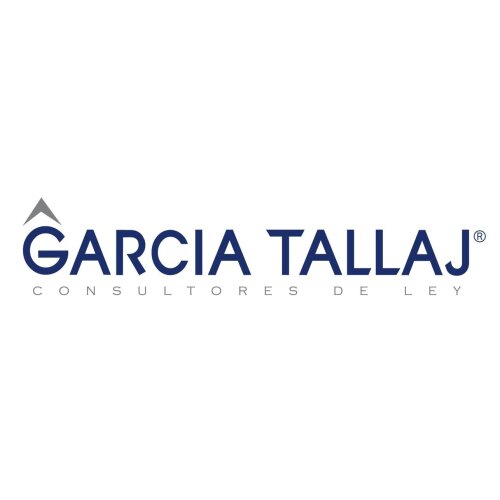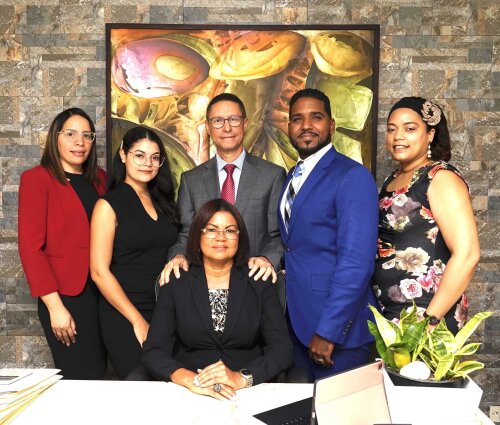Best Government Relations & Lobbying Lawyers in Sosua, Cabarete
Share your needs with us, get contacted by law firms.
Free. Takes 2 min.
List of the best lawyers in Sosua, Cabarete, Dominican Republic
About Government Relations & Lobbying Law in Sosua, Cabarete, Dominican Republic
Government Relations & Lobbying law in Sosua and Cabarete, located in the Puerto Plata province of the Dominican Republic, regulates the interactions between private individuals, businesses, organizations, and government officials or agencies. Government Relations involves understanding, influencing, and navigating governmental decision-making processes, while Lobbying typically refers to efforts to advocate for or against specific policies or regulations. In the Dominican Republic, laws and regulations pertaining to transparency, ethical conduct, and anti-corruption are becoming increasingly relevant, as both local and foreign entities seek to engage with public officials for permits, contracts, incentives, or policy reforms.
Why You May Need a Lawyer
Engaging with government authorities or seeking to influence legislation or public policy in Sosua or Cabarete can be complex due to the unique regulatory environment, language barriers, and cultural norms. You may need a lawyer if:
- You are a foreign investor or business seeking permits, licenses, or government incentives.
- Your organization aims to influence local policies affecting tourism, development, or environmental regulations.
- You are navigating public procurement or bidding on government contracts.
- You believe a government action or regulation adversely impacts your business or property rights.
- You need to ensure compliance with local anti-corruption and transparency laws.
In any such situation, a qualified legal professional can offer guidance, manage correspondence with authorities, and help avoid pitfalls, such as unintentional violations of lobbying or anti-bribery laws.
Local Laws Overview
While the Dominican Republic does not have a law specifically dedicated to lobbying, government relations are influenced by several legal instruments:
- Law 340-06 governs public procurement, outlining transparent processes for government contracting.
- Law 41-08 details the Civil Service regime, defining the roles and responsibilities of public officials.
- Anti-Corruption Laws: Penal Code articles and special statutes, such as Law 448-06 on Corruption, prohibit bribery of public officials and require ethical conduct in dealings with authorities.
- Transparency and Access to Information (Law 200-04): Provides mechanisms for requesting public information and encourages transparency in government affairs.
In Sosua and Cabarete, local authorities may impose additional guidelines regarding meetings, disclosures, or registrations, especially for foreign individuals or organizations. Given the region's prominence as a tourist hub, local regulations around land use, environmental impact, taxation, and foreign investment can also intersect with government relations activities. These complexities highlight the importance of local legal expertise.
Frequently Asked Questions
What is considered lobbying in the Dominican Republic?
Lobbying refers to any attempt to influence public officials or governmental bodies regarding policy, regulation, permits, or contracts. While not expressly defined in national law, such activities involve direct or indirect advocacy to achieve a specific outcome or decision from public authorities.
Is lobbying legal in Sosua and Cabarete?
Lobbying is not illegal, but must be conducted transparently and ethically. Engaging in bribery or undue influence is strictly prohibited under Dominican anti-corruption laws.
Are there registration or reporting requirements for lobbyists?
There is no formal lobbying registry at the national or local level. However, certain activities may require disclosures or authorizations, especially if you represent foreign interests or seek access to sensitive government processes.
Can foreign businesses or individuals engage in lobbying?
Yes, both local and foreign entities may engage in government relations and lobbying, but must comply with all relevant laws, including those concerning anti-bribery, transparency, and fair competition.
What risks are involved in government relations without legal advice?
Risks include violating anti-corruption laws, inadvertently participating in conflicts of interest, or facing legal consequences for improper conduct. There can also be reputational damage and challenges in obtaining permits or approvals.
How can a lawyer help with government procurement processes?
A lawyer can guide you through the tendering and contract award process, ensure compliance with bidding rules, prepare the necessary documentation, and address any disputes or challenges that arise.
What documents or information might be required for government relations matters?
Depending on the objective, you may need business registration documents, project proposals, identification, evidence of compliance with tax and labor laws, and in some cases, due diligence reports.
How are conflicts of interest managed in public dealings?
Public officials must disclose possible conflicts, and private parties should be transparent about their interests. Violations or non-disclosure can lead to sanctions or disqualification from government processes.
What should I do if I suspect corruption or unethical behavior?
Report the matter to the Public Ministry’s Anti-Corruption Unit (Procuraduría Especializada de Persecución de la Corrupción Administrativa) or seek legal counsel to understand your options and legal protections.
Is lobbying activity public information?
Some interactions, especially those involving contracts or regulatory changes, may become public via official registries or transparency mandates. However, private consultations may remain confidential unless disclosure is required by law.
Additional Resources
The following governmental bodies and organizations can provide information or support related to Government Relations & Lobbying in Sosua and Cabarete:
- General Directorate of Public Procurement (Dirección General de Contrataciones Públicas)
- Public Ministry Anti-Corruption Unit (Procuraduría Especializada de Persecución de la Corrupción Administrativa - PEPCA)
- Chamber of Commerce and Production of Puerto Plata
- Local government offices in Sosua and Cabarete (Ayuntamiento Municipal)
- Dominican Association of Foreign Investment Companies
- National Office for the Defense of Competition (Pro-Competencia)
Legal directories and the Dominican Bar Association are additional sources for finding qualified attorneys with experience in government relations or administrative law.
Next Steps
If you believe you need legal assistance with government relations or lobbying in Sosua or Cabarete:
- Consult with a reputable local attorney experienced in governmental affairs, administrative law, or public procurement.
- Clearly outline your objectives, such as permits, policy advocacy, or contract bids, and gather all relevant documentation.
- Identify any specific government bodies or officials relevant to your matter.
- Discuss potential risks and obtain advice on how to comply with transparency and anti-corruption requirements.
- Follow your lawyer's guidance for next steps, which may include submitting formal requests, attending meetings, or preparing legal analysis.
A legal professional with local expertise will help you protect your interests, handle interactions with public authorities efficiently, and ensure all activities are compliant with Dominican laws.
Lawzana helps you find the best lawyers and law firms in Sosua, Cabarete through a curated and pre-screened list of qualified legal professionals. Our platform offers rankings and detailed profiles of attorneys and law firms, allowing you to compare based on practice areas, including Government Relations & Lobbying, experience, and client feedback.
Each profile includes a description of the firm's areas of practice, client reviews, team members and partners, year of establishment, spoken languages, office locations, contact information, social media presence, and any published articles or resources. Most firms on our platform speak English and are experienced in both local and international legal matters.
Get a quote from top-rated law firms in Sosua, Cabarete, Dominican Republic — quickly, securely, and without unnecessary hassle.
Disclaimer:
The information provided on this page is for general informational purposes only and does not constitute legal advice. While we strive to ensure the accuracy and relevance of the content, legal information may change over time, and interpretations of the law can vary. You should always consult with a qualified legal professional for advice specific to your situation.
We disclaim all liability for actions taken or not taken based on the content of this page. If you believe any information is incorrect or outdated, please contact us, and we will review and update it where appropriate.









